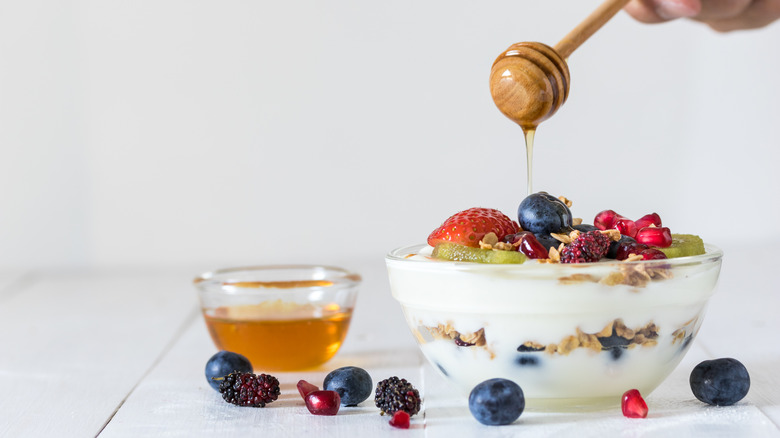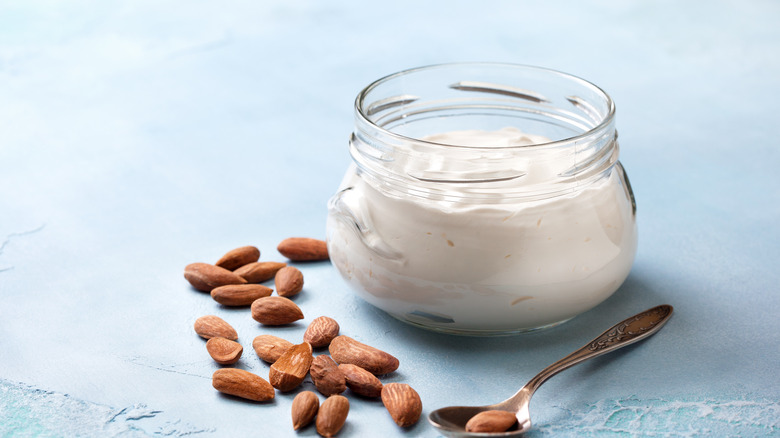Plant-Based Yogurt Isn't As Healthy As You Might Think
No doubt about it, yogurt can be a great addition to your diet. According to Healthline, yogurt is rich in nutrients like B vitamins, calcium, and protein. Yogurt also contains probiotics, which may help boost gut health and strengthen your immune system. That being said, yogurt isn't for everyone. Because yogurt is a dairy product, it should not be consumed by those with lactose intolerance or dairy sensitivities. And actually, you may not want to eat yogurt every day, even if you don't have dietary restrictions.
However, with a good chunk of the world's population looking for plant-based foods, we now have plant-based yogurt as well. Per Food Revolution Network, yogurt is now being made with the same alternatives we use for plant-based milk – soy, almonds, coconuts, hemp, cashews, oats, and even pea protein. But despite being made from plants, which we typically consider healthy, plant-based yogurt might not be any healthier than the standard dairy-derived yogurt.
Why isn't plant-based yogurt the new superfood?
Although plant-based yogurt offers benefits similar to those of regular yogurt, it also has a number of pitfalls that may have you second-guessing. For one, because plant-based yogurt is made from plants, it typically has a much lower serving of protein than yogurt made from dairy. Secondly, as Eat This, Not That! points out, plant-based yogurts tend to be made with more sweeteners. Between too much sugar and not enough protein, you're going to be hungry again much sooner than you would with dairy-based yogurt.
So what can you do to make plant-based yogurt a more well-rounded snack? First, opt for unsweetened yogurt, if possible. You can then add your own extra ingredients at home to control the sweetness and increase protein. Per Clean Eating Magazine, different seeds or nuts can add protein, while spices or honey can give you a bit of flavor. You can also top off your plant-based yogurt with fresh fruit of your choice.

